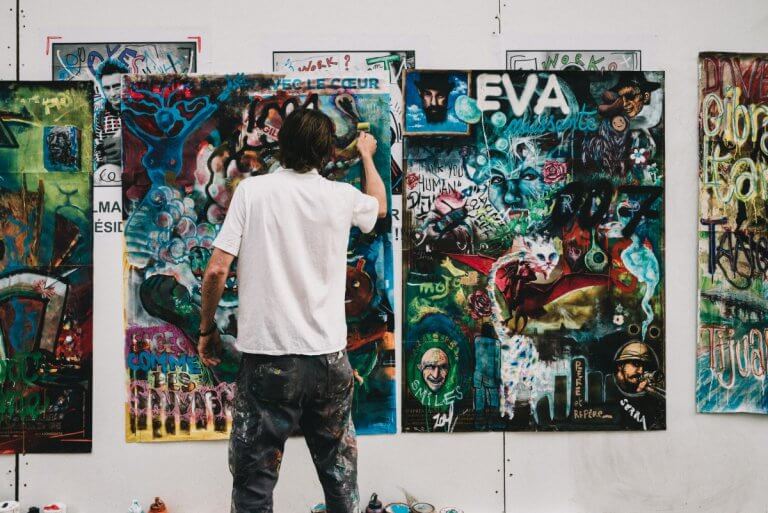
From primary school onwards, we’re taught to follow our aspirations and embrace our talents.
If those aspirations happen to involve a paintbrush, a pen and paper or a stage, the most we can possibly hope for is a successful career in the arts.
In the age of motivational speakers and digital influencers, we’re surrounded by creative moguls who have mastered their trade, inspiring and inspiriting us with powerful personal messaging.
A quote from one of the most famous American speakers of our time, Tony Robbins, as an example, can make us feel like anything is possible. We have the ability to bring the depth of our desires to the surface.
As Robbins regularly says: “It’s what you practice in private that you will be rewarded for in public.”
So if you’re an avid sculptor or a design whizz, the art you practice throughout school and university is what you hope to be rewarded for as you enter the working world.

We are encouraged to capitalise on our creativity. Source: Spencer Imbrock/Unsplash
But the hopes of securing a creative career seems to be diminishing in the UK, a fact emphasised by the Onward report named A question of degree.
After analysing the prospects of each university course, the report states that, “The lowest earning subjects of all were creative arts courses, which had the largest number of graduates of any course type despite the lowest earnings. Ten years after graduating, the median creative arts graduate does not earn above the £25,000 repayment threshold and is not paying anything back.”
So, let’s take a look at the course table below and decipher the creative dilemma for ourselves.
As you can see, creative arts and design degrees fall dramatically fall behind other courses like engineering and technology.
Yet, innovative degrees like architecture, building and planning thrive, despite involving artistic design techniques such as sketching and mapping.
Will this revelation put students off following their creative desires? Could it lead to a collapse of creative industries sparked by falling demand?

Surpressing creative spirit may not end well for the industries of tomorrow. Source: Trent Szmolnik/Unsplash
The pitfalls of creative careers
One pitfall that screams out from the data above is the lack of financial investment.
In a world led by innovation, the lack of return for creative arts and design degrees is somewhat of a paradox.
We all know that freelancing platforms and media companies seek professional content creators to inscribe their next big slogan in return for cash. But the amount they receive is questionable – especially as the data depicts a clear struggle for creatives to push themselves over the £25,000 mark.
According to Pearson College London and previous research conducted by their VFX partner Escape Studios, “62% of UK students feel they have not been made aware of a future within the creative industries by teachers or career advisors.”
Yet, “70% of 16-18-year-olds cite they would like to pursue a career in the creative industries.”
Is that because creative careers still hold a stigma of having a short lifespan with little financial return?
Or the fact that parents, teachers and career advisors believe a safer option is best for all, pushing students towards the medical or accounting roles that sit at the top of the payment table?
As the Director of Escape Studios, Dr Ian Palmer explains, “The spotlight is definitely shining on the creative industries, with innovation fuelling this sector forwards and new jobs being created every year. We’re thrilled to see that such a high percentage of UK students are showing an interest. However, it’s concerning to learn the workforce of the future feels they are lacking the right kind of support while in secondary education and at home.”
The positives of creative careers
There’s nothing healthier than following your inner aspirations and projecting those into a career of your choice.
We aren’t on this planet forever and we may as well use our natural-born abilities to make it a better place. Whether that’s designing a new eco-friendly system that helps wash up the garbage from our ocean floors, or it’s creating a story that teaches a child essential values they may miss out on from a neglected upbringing, creativity is essential.
The data may portray a lack of financial reward, but that doesn’t mean everyone who uses their artistry will end up wishing they took a more lucrative course – remember that those who do probably wound up settling for something that didn’t make them happy.
Positives will spring from your canvas, from your illustration tablet and even from your mind.
But if the oppression of creativity in society and global education continues, we may lose the ability to express and most importantly – to enjoy.
Liked this? Then you’ll love…
Quiz: Which type of creative learner are you?
UK student challenges school’s bag ban with a creative alternative







